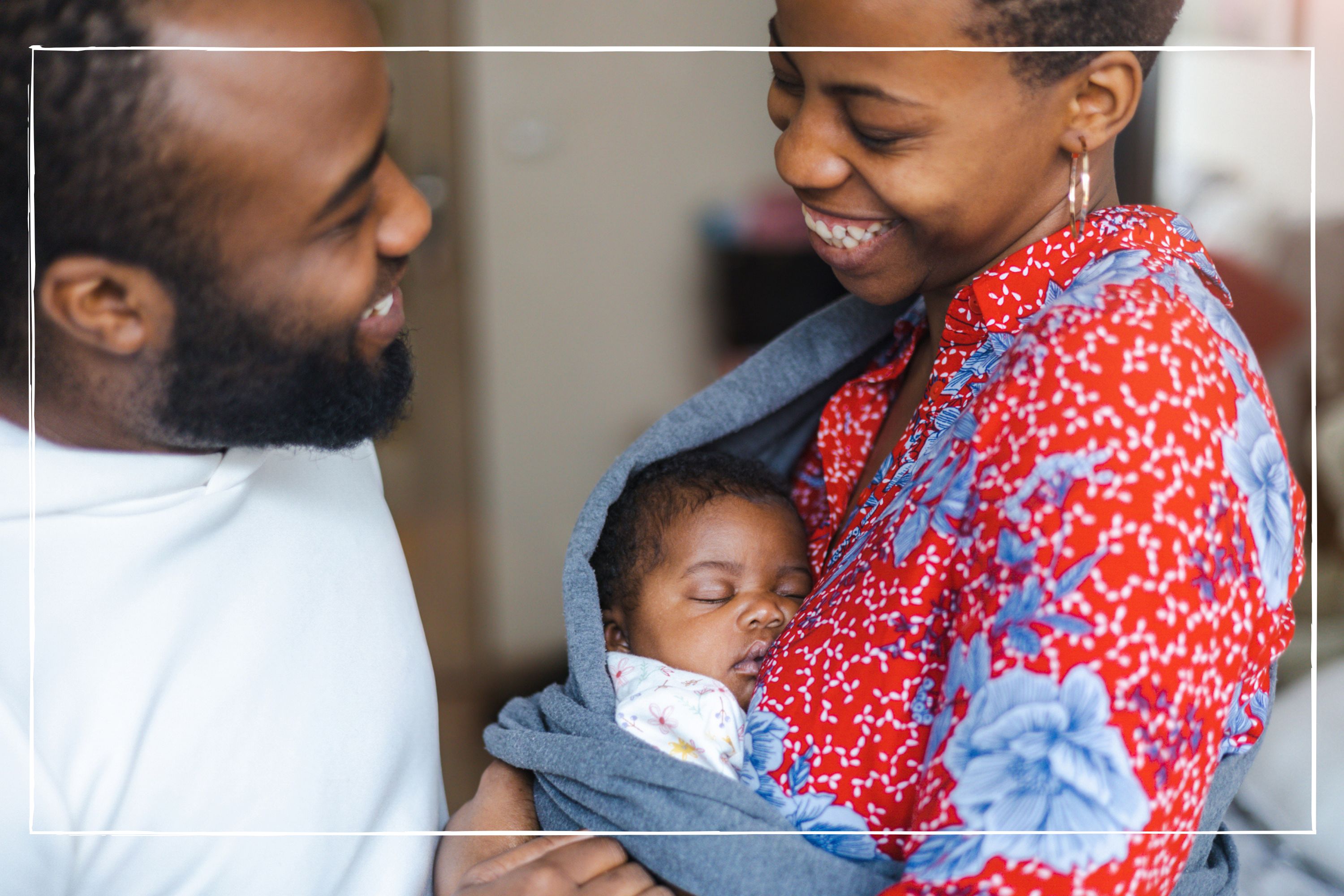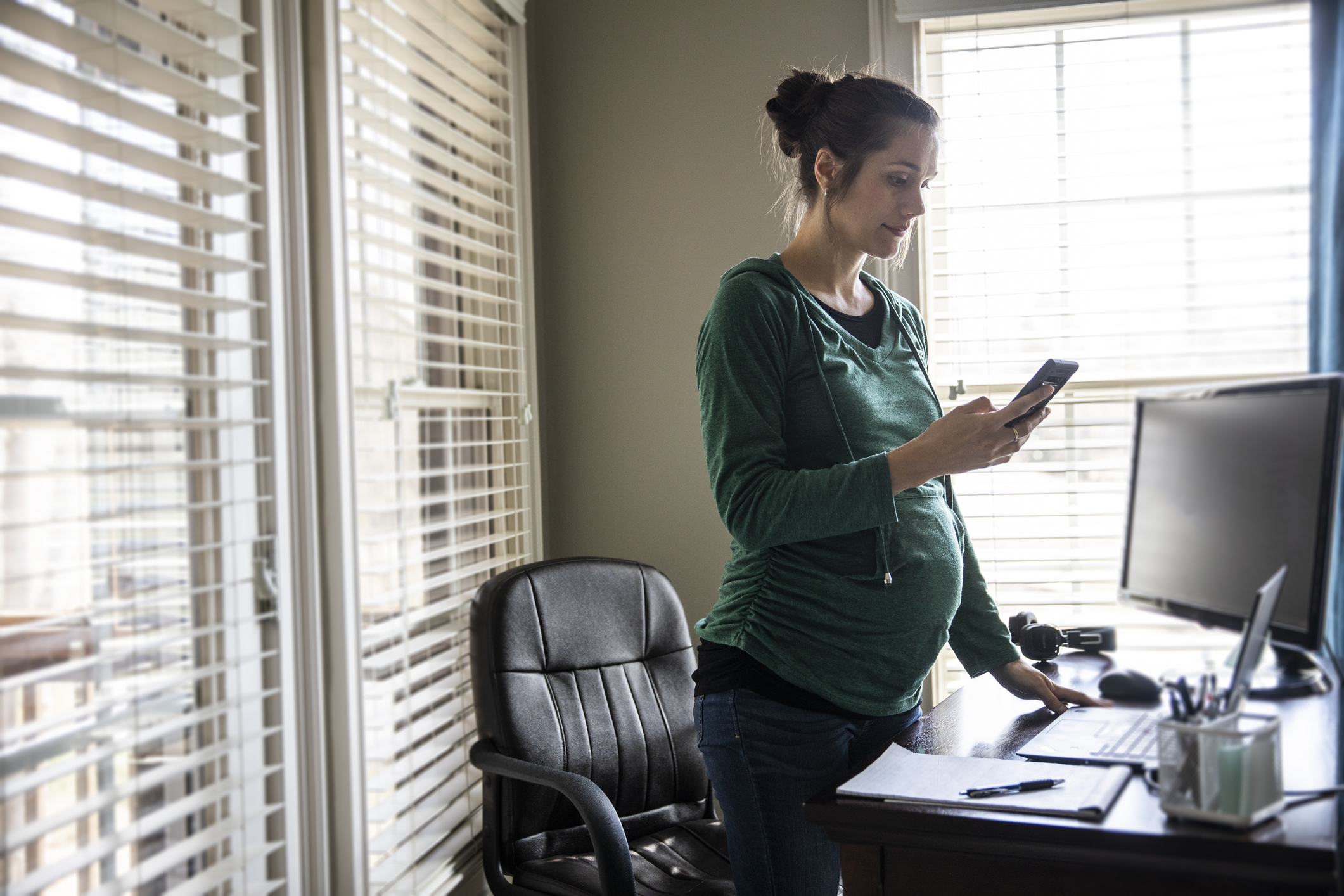What happens to your pension when you’re on maternity leave?
Don't forget to check what happens to your pension before you go on maternity leave - it could make a massive difference to your future

Parenting advice, hot topics, best buys and family finance tips delivered straight to your inbox.
You are now subscribed
Your newsletter sign-up was successful
When you finish work to have a baby, your mind is likely to be a whirlwind - and it'll be so easy to forget to consider what will happen to your pension when you go on maternity leave.
You will have likely considered how much maternity pay you will get, how it's calculated and who actually pays it. You may have thought even further about the benefits that you could claim while on maternity leave if you're not sure you can make ends meet. But it's also really important to understand your pension position while you are off, as it could have a hugely positive impact on your income when you eventually retire.
Rebecca O’Connor, director of public affairs at pension company PensionBee, says: “Going on maternity leave means you are going through a very exciting time in your life. But there are a few things to tick off your to-do list before you head off that will help keep your pension chugging along while you aren’t working."
“When women go on maternity leave tends to be the point when the gender pension gap really starts to open up between men and women,” she explains. “Until women go back to work after they have had children, Office of National Statistics data suggests that pay and therefore pensions, are roughly even for men and women. However, from age 40, an age when typically, many women go ‘back to work’ once their children are a bit older, the pay gap increases dramatically.”
This means that women are saving less into their pensions than their male colleagues. And, by the time they’re getting ready to retire in their 60s, women will typically have just £51,500 stashed away, compared to almost £156,500 for men, according to numbers crunched by the Pension Policy Institute. This disparity can be even more striking for single or divorced mothers - who are the worst affected by the motherhood penalty.
What happens to my pension while I’m on maternity leave?
What happens to your pension while you are on maternity leave initially depends on the type of pension. If you work, you will need to consider how your maternity leave could affect two types of pension - the one you get from work, called your workplace pension, and the one you will get from the government, called the State Pension.

Before you go on maternity leave, it's important you understand what impact it may have on your pension and what you can do to lessen it
When it comes to your workplace pension, just as your employer will be paying you your maternity pay when you’re on leave, they’ll also stay on top of your pension. However, your own pension contributions will only be based on your actual earnings, which means you’ll most likely be paying less in than normal.
Parenting advice, hot topics, best buys and family finance tips delivered straight to your inbox.
Alice Guy, head of pensions at Interactive Investor explains: "The good news is your employer will keep paying into your pension at the same rate for most of your maternity leave, even if your pay drops. But, if you're taking a full year off, you'll need to check out your contract as your employer's contributions might stop after week 40, depending on the terms."
These rules don’t just apply to mums on maternity leave, they’ll also cover contributions for parents taking paternity, adoption or shared parental leave.
Workplace pension rules mean you are perfectly within your rights to stop making your pension contributions if money is tight. However, it’s not a decision to take lightly. If you do this, you’ll also lose your employer contributions and tax relief – the top up the government pays into your pension, which boosts a basic rate taxpayer’s contributions by 25%.
PensionBee's Rebecca O’Connor says, if it is at all possible, it’s best to stay put. “’Set and forget’ is a good mantra during this period. Just leave your contributions as they are and forget they are even happening. You are only ever going to be grateful that you did.”
“By prioritising your future self, you are actually also doing your children a favour, too, because if you have a decent retirement income, they will be spared any worry about whether you are managing when you’re all older.”
What about my state pension?
It’s also important that you understand what will happen with your state pension when you have children. The full state pension is currently worth around £10,600 a year, so it could make up the majority of your income when you retire.
To get the full state pension you need 35 years of national insurance contributions.
You will still build up your national insurance record while you are on maternity leave, but you may need to take action if you decide not to return to work
“If you’re taking time out to care for children you are eligible for national insurance credits and the usual way to get these is through filling out a form to claim child benefit. If you don’t plan on claiming child benefit, it’s important to still fill out the form, to get the national insurance credits,” explains pension expert Rebecca O’Connor.

Keeping your pension going when maternity leave is over
Even if you are returning to work part-time, or juggling additional costs like childcare, it’s best to keep your pension contributions going if you can.
Pension expert Alice Guy says: “Even small amounts paid into your pension now can grow over time and be worth much more by the time you reach retirement due to the magic snowballing effect of investment growth."
If you decide not to return work but have some money to spare, paying it into your pension could still be an excellent investment, with separate allowances for people that aren’t currently paying tax. She adds: “You're allowed to pay in up to £2,880 each tax year and your contributions will still be topped up by the taxman, so it only costs £80 to pay £100 into your pension.”
Even if you are returning to work part-time, or juggling additional costs like childcare, it’s best to keep your pension contributions going if you can.
Alice Guy says: “Even small amounts paid into your pension now can grow over time and be worth much more by the time you reach retirement due to the magic snowballing effect of investment growth."
If you decide not to return work but have some money to spare, paying it into your pension could still be an excellent investment, with separate allowances for people that aren’t currently paying tax. She adds: “You're allowed to pay in up to £2,880 each tax year and your contributions will still be topped up by the taxman, so it only costs £80 to pay £100 into your pension.”
As well as being a mum, Rachel Lacey is a freelance journalist with more than 20 years' experience writing about all areas of personal finance and retirement planning. After 17 years at Moneywise magazine as both writer and editor, Rachel now writes for a variety of websites and newspapers as well as corporate clients. She is passionate about financial education and simplifying money matters for all.